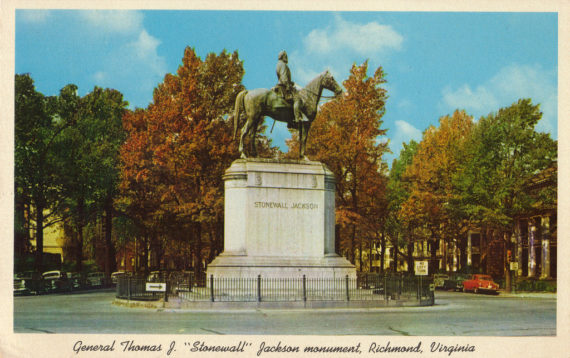
On January 21st Washington Post reporter Courtland Milloy wrote an article about my “Defending Confederate Monuments” speech at the January18th Lee-Jackson Day in Lexington, Virginia. His “Lee-Jackson Day with a bit of history and context” article portrays me unfairly. Today’s post responds to one Milloy comment excerpted below:
Before giving his keynote speech, Civil War book author Phil Leigh made an offhand remark discounting the role of slavery in the war. Another man overheard him and pointed out that nearly all the states that seceded from the Union had cited the preservation of slavery as a main reason.
That was it. End of the exchange.
I do not recall this exchange. Mr. Milloy could have contacted me before writing the above to see if I had any response. He had my email address, since he asked me to send him a copy of my speech, which I did before even taking the podium. (We were sitting next to one another during the preliminaries.) Before he left the lecture hall after my speech he told me, “I will be in touch.” But he never contacted me. If he had, I would have responded with the remarks below, which I asked the Washington Post to print as an Op-Ed. The Post declined yesterday.
Why Did the North Fight the Civil War?
Even though most secession declarations provided by the first seven states to join the eleven-state Confederacy cited protecting slavery as a prime motive, the reasons for Southern secession cannot be equated with the reasons for the Civil War. There would have been no war, for example, if the North had permitted the seven cotton states to depart peacefully. Everyone knew there was no danger that the South would invade the North to overthrow the Washington government. Confederate President Jefferson Davis put it succinctly: “All we ask is to be left alone.” To identify the cause of war it is as necessary to understand why the North chose to fight as it is to recognize why the cotton states seceded.
Contrary to popular belief Northerners did not decide to fight in order to end slavery. Before the shooting started, the legislatures of at least ten Northern states adopted resolutions explaining their objections to Southern secession. None stated they wanted to end slavery. Most specified a desire to “preserve the Union,” which was a euphemistic way of saying that they wanted to avoid the economic consequences of disunion. They realized that a truncated Union separated from its Southern states would face two major economic problems.
First, it could not hope to maintain a favorable balance of payments. The slave states accounted for two-thirds of America’s exports. Without the South America might become a perpetual debtor nation forever at the mercy of its stronger trading partners that would deplete her gold supply in order to settle persistent trade deficits.
Second, since the Confederate constitution outlawed protective tariffs her lower tariffs would confront the remaining states of the Union with two consequences. First, since ninety percent of Federal taxes came from tariffs the government would lose a significant proportion of its revenue. Articles imported into the Confederacy would divert tariff revenue from the USA to the CSA. Second, and more importantly, a low Confederate tariff would cause Southerners to buy manufactured goods from Europe as opposed to the Northern states where prices were artificially inflated by protective tariffs. Consequently, the market for Northern manufactured goods in the South might nearly vanish. That market was estimated at $200 to $400 million, which was much more than America’s $54 million in tariffs collected in 1860.
Finally, Virginia, North Carolina, Tennessee and Arkansas did not join the Confederacy until after President Lincoln required that they provide soldiers to militarily force the seven cotton states back into the Union, which they believed to be unconstitutional. Although each had previously refused to secede, they doubled the Confederacy’s white population and military capacity when they rejected Lincoln’s coercion demand.
Even Eric Foner admits that most modern historians don’t understand why the North chose to fight. In reality, those historians don’t want to concede selfish motives among our Northern ancestors because that would contradict the zeitgeist vouchsafed by the cultural elite.






